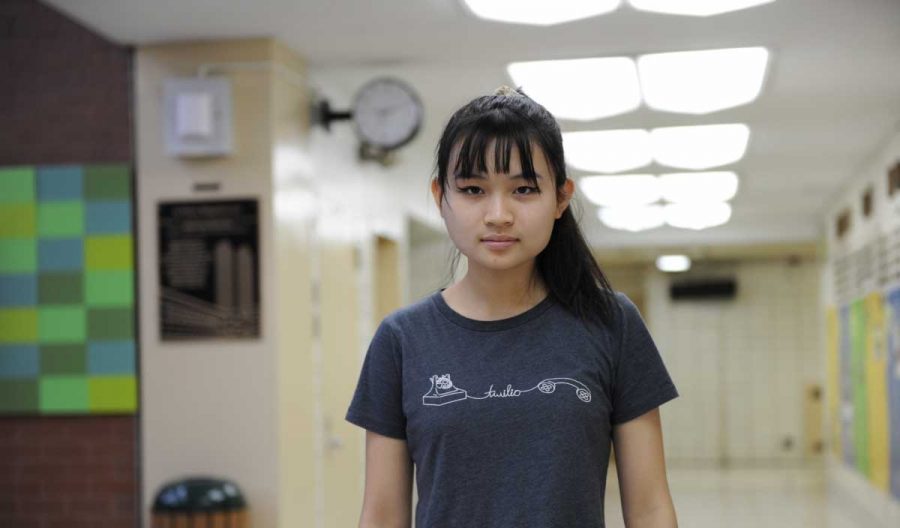Genes in Space Finalists Announced
Elena Li ’18, one of Bronx Science’s Genes in Space Finalists.
A Bronx Science research team consisting of Elena Li ’18 and Maxwell Allison ’18 have been named one of the five finalists in the annual U.S. Genes in Space science competition. The team conducted research regarding bone loss in microgravity and the involvement of genetic components in the problem. They presented their research proposals at the 2017 International Space Station Research and Development Conference in Washington, D.C. from July 17-20, 2017 and were also given the opportunity to be mentored by scientists from MIT and Harvard University.
Li and Allison’s Biology class required that they submit their research to Genes in Space, and the two students chose to collaborate on their project over the summer, while balancing research with their mentors at separate research labs.
“It was incredible to present at the ISS Research and Development Conference because we got to share our ideas and research with accomplished scientists.” -Elena Li ’18
Li worked at Memorial Sloan Kettering lab under Dr. Daniel Garaulet, studying the role of Bithorax Complex microRNAs in the development of neurons that underlie sexual behaviors in Drosophila flies. In her junior year, Li was named a Siemens semifinalist for the project she worked on with her mentor. Allison on the other hand, worked in a HIV lab at Mount Sinai conducting genetic research, which involved using CRIPSR to delete receptors on T cells to test their involvement in HIV infection. They took the knowledge they gained from working with their mentors into their Genes in Space research project. “Besides the technical procedures that I learned from my mentor, I have also learned the importance of determination, with many of the procedures we were using to be imperfect and not precise. I took this into my work for Genes in Space,” said Li ’18.
Li and Allison were both enthusiastic about conducting research contributing to space exploration. At the ISS Conference in Washington D.C., the two proposed to use a 4C chromosome conformation assay to examine the promoter-enhancer interactions at the Sclerostin gene in microgravity. In addition to their proposal, the team were also given the chance to listen to lectures by members of the space research community like Elon Musk. “It was incredible to present at the ISS Research and Development Conference because we got to share our ideas and research with accomplished scientists,” said Li, “I was really honored to be a finalist and happy to have the opportunity to present my work.”
Winni You is a Staff Reporter for ‘The Science Survey’ and a Groups Section Editor for ‘The Observatory’ yearbook. Winni finds journalism appealing...

